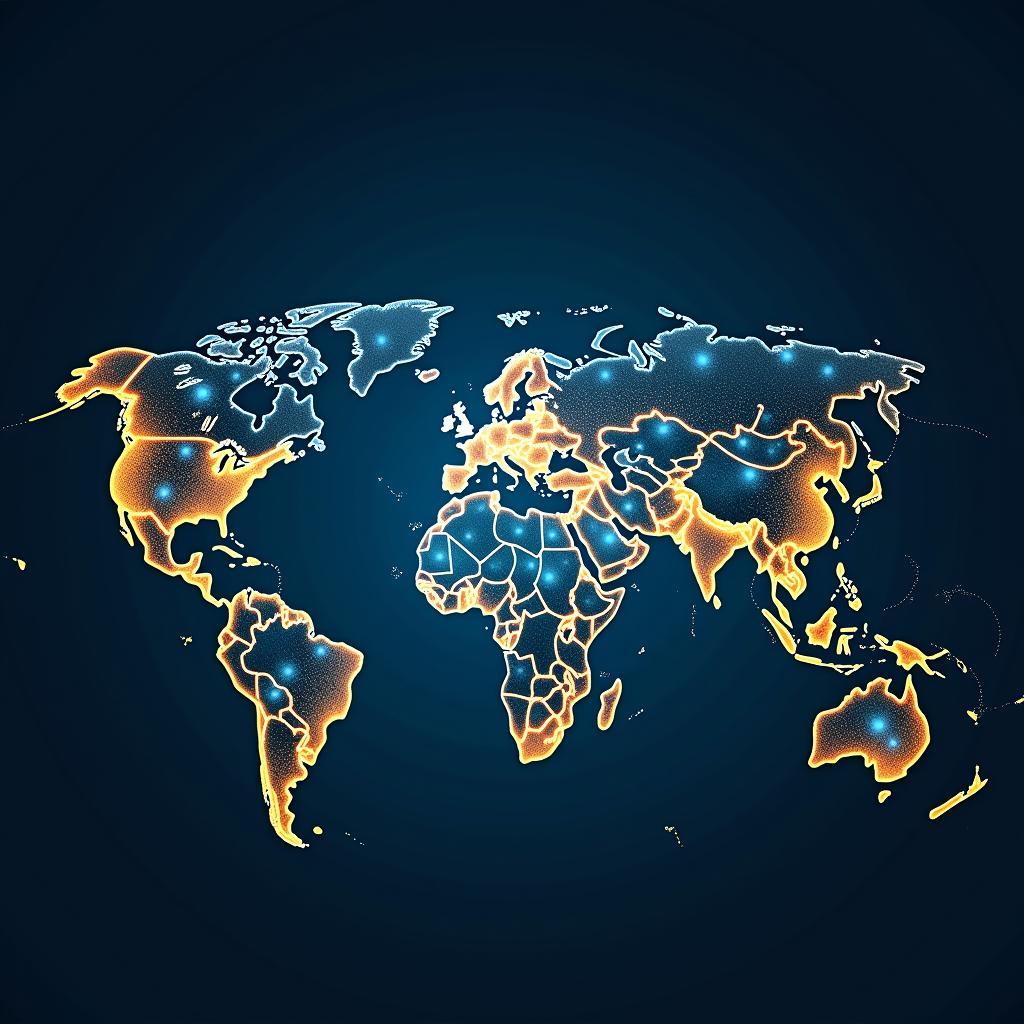Comparative Literature And Society are intrinsically linked, offering a powerful lens through which we can understand different cultures and promote peace in our interconnected world. By exploring literary works across languages and borders, we gain insight into the values, beliefs, and experiences that shape societies. This understanding fosters empathy, breaks down stereotypes, and builds bridges between communities. Comparative literature allows us to recognize our shared humanity while appreciating the rich diversity of human expression.
How Comparative Literature Illuminates Societal Values
Comparative literature analyzes texts from different cultures, revealing the underlying social, political, and historical contexts that inform their creation. By comparing and contrasting these works, we uncover common themes, recurring motifs, and divergent perspectives that reflect the unique values and beliefs of each society. For instance, comparing epic poems like the Epic of Gilgamesh and the Iliad reveals differing cultural attitudes towards heroism, mortality, and the role of the gods in human affairs. This comparative analysis sheds light on the fundamental values that shaped ancient Mesopotamian and Greek societies.
Studying literature across cultures also exposes us to diverse social structures, power dynamics, and cultural practices. Novels like Things Fall Apart by Chinua Achebe and One Hundred Years of Solitude by Gabriel García Márquez offer contrasting portrayals of colonialism’s impact on traditional societies. Through these narratives, we gain a deeper understanding of the social and political forces that have shaped the modern world.
comparative literature and society columbia
The Role of Translation in Bridging Cultural Divides
Translation plays a crucial role in making comparative literature accessible to a wider audience. By bridging linguistic barriers, translation facilitates cross-cultural understanding and dialogue. However, the process of translation is not simply a matter of converting words from one language to another. It also involves conveying cultural nuances, idiomatic expressions, and literary styles that are essential to understanding the original text’s meaning and impact.
 Bridging Cultural Divides Through Translation
Bridging Cultural Divides Through Translation
Can Comparative Literature Promote Peace?
The study of comparative literature can be a powerful tool for promoting peace and reconciliation. By fostering empathy and understanding between different cultures, it challenges prejudice and promotes tolerance. Reading literature from other cultures helps us to see the world through different eyes, to recognize the humanity of those who may seem different from us, and to appreciate the richness and diversity of human experience.
How Literature Fosters Empathy and Understanding
Literature can cultivate empathy by allowing readers to step into the shoes of characters from different backgrounds and experience the world from their perspectives. This vicarious experience can break down stereotypes and foster a sense of shared humanity. For example, reading narratives about refugees and displaced peoples can help us to understand the challenges they face and to develop compassion for their plight.
Addressing Historical Trauma and Promoting Reconciliation
Comparative literature can also play a role in addressing historical trauma and promoting reconciliation between communities that have experienced conflict. By examining literary representations of past injustices, we can gain a deeper understanding of the root causes of conflict and the long-term consequences of violence. This understanding can inform efforts to build peace and promote healing.
Comparative Literature in the Digital Age: Expanding Access and Fostering Global Dialogue
The digital age has revolutionized the field of comparative literature, providing unprecedented access to texts from around the world. Online platforms, digital archives, and translation tools have made it easier than ever to engage with literature across languages and cultures. This increased accessibility has created new opportunities for cross-cultural dialogue and collaboration, fostering a sense of global community.
Conclusion
Comparative literature and society are inextricably linked, providing a powerful means of understanding different cultures and fostering peace in a globalized world. By exploring literature across languages and borders, we gain insights into the values, beliefs, and experiences that shape societies, promoting empathy, breaking down stereotypes, and building bridges between communities. In a world increasingly interconnected yet often divided, comparative literature offers a vital pathway towards greater understanding and peaceful coexistence.
 Comparative Literature and Global Community in the Digital Age
Comparative Literature and Global Community in the Digital Age
FAQ
-
What is the focus of comparative literature? Comparative literature focuses on the study of literature across languages, cultures, and national boundaries.
-
How does comparative literature benefit society? It promotes cross-cultural understanding, empathy, and critical thinking skills.
-
What are some examples of comparative literature studies? Comparing the works of Shakespeare and Molière, or analyzing themes of colonialism in African and South American novels.
-
Is knowledge of multiple languages required for comparative literature? While beneficial, it is not always strictly required. Many programs offer courses in translation and focus on critical analysis.
-
What career paths can a degree in comparative literature lead to? Academia, translation, journalism, international relations, cultural management, and publishing are some possibilities.
-
How does comparative literature relate to peace studies? By fostering understanding between different cultures, it can contribute to conflict resolution and peacebuilding.
-
Where can I find resources for studying comparative literature? Universities, libraries, online databases, and cultural institutions offer a wealth of resources.
Need further assistance? Contact us 24/7: Phone: 02043854663, Email: [email protected], Address: Khu 34, Bắc Giang, 260000, Vietnam.